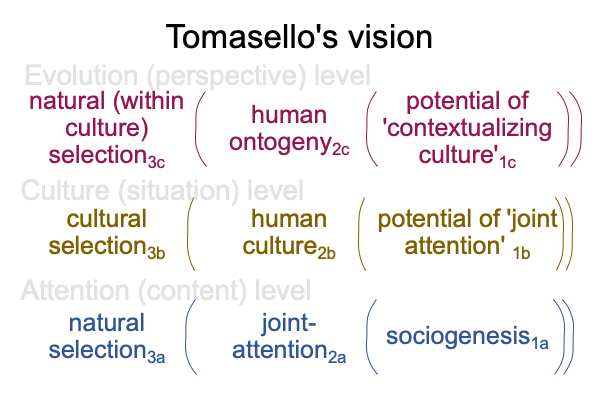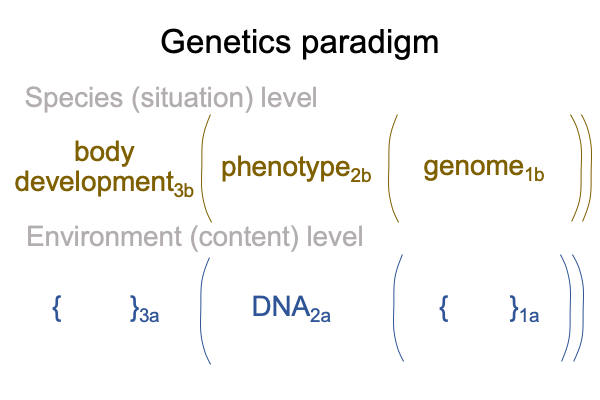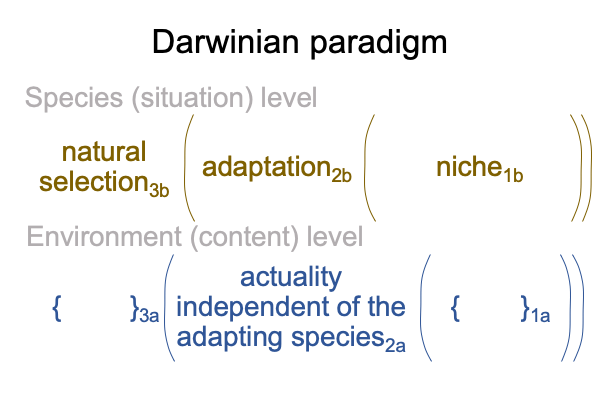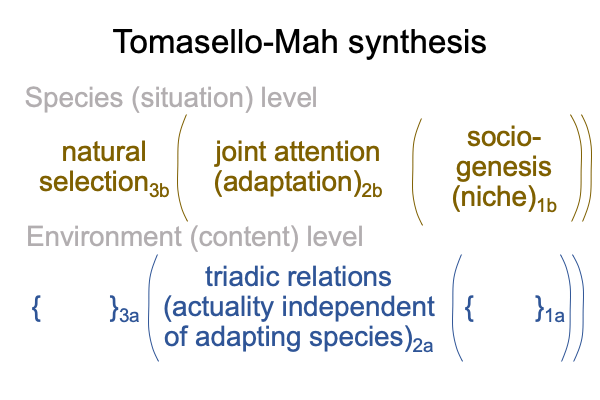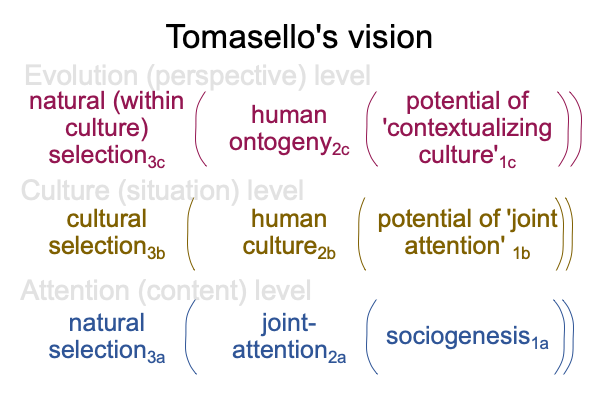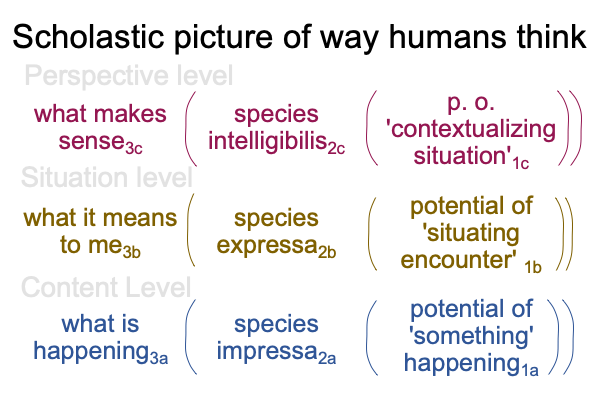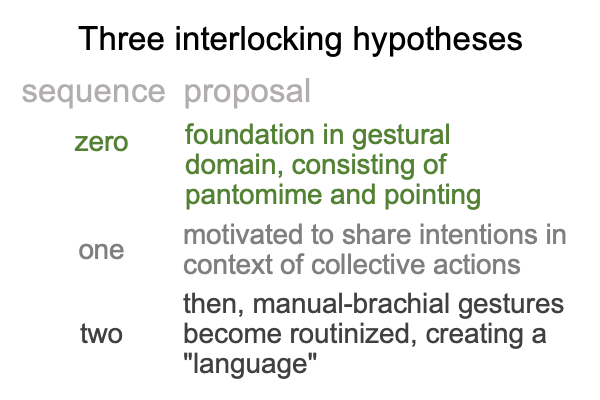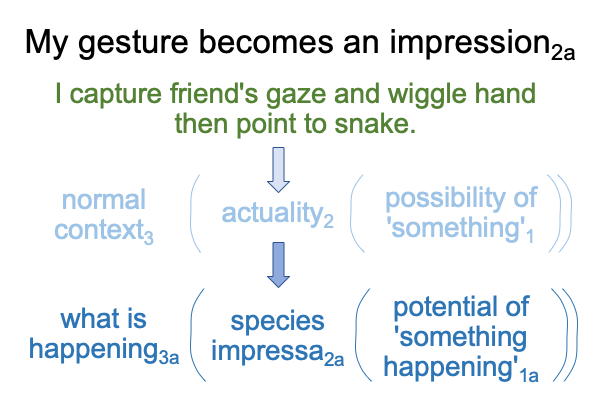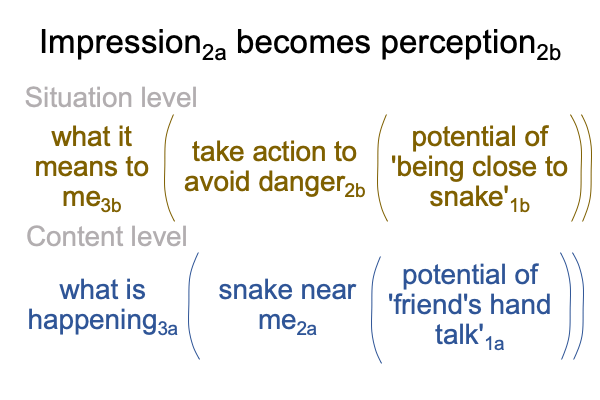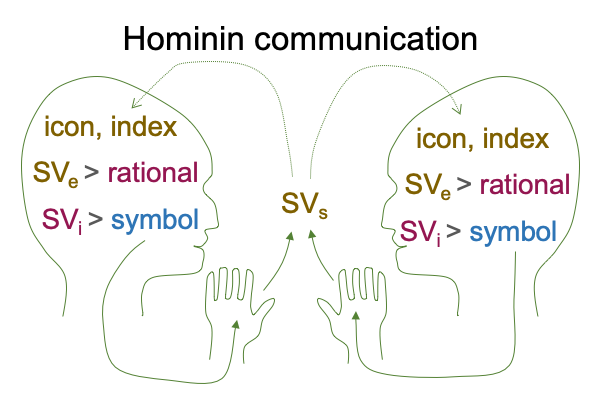Looking at Michael Tomasello’s Book (1999) “The Cultural Origins of Human Cognition” (Part 12 of 12)
0072 Chapter five is titled, “Linguistic Construction and Event Cognition”. The perspective-level linguistic communication2c participates in ongoing events2a.
Tomasello claims that joint attention is the key adaptation from which subsequent adaptations proceed. Surely, the three-level interscope depicted above does not contradict this claim.
After all, the evolution of joint attention should precede the evolution of linguistic communication.
0073 However, there is a disjunction, because great apes show few (if any) tendencies that may be characterized by joint attention. Even the occasional monkey hunt by chimpanzees is best characterized by several individuals deciding to pursue the same thing at the same time. The monkey-prey is the focus of attention, but the attention is disjointed, not really coordinated.
So, there must be a period before the evolution of joint attention, where individual intentionality reigns, even when group action takes place.
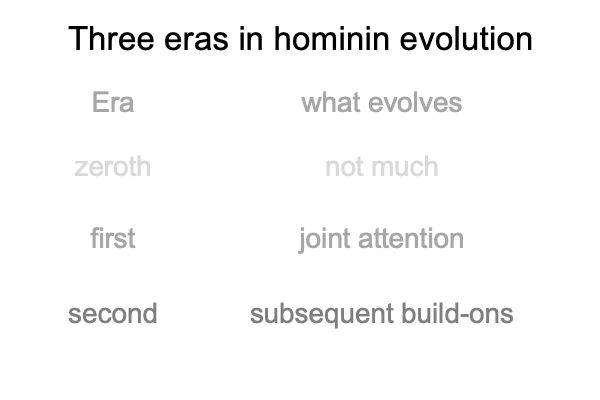
0074 So, when are these eras happening?
Tomasello wants to place the evolution of joint attention before the time of Homo heidelbergensis, who appears in the fossil record between 800 and 400kyr (thousands of years ago).
To me, this makes sense only so far as this.
Homo heidelbergensis leaves traces of cultural behavior in the archeological record.
To me, such traces indicate that these hominins are in the subsequent build-on era.
So, Tomasello’s timeline may require clarification.
0075 Okay, now that I am nitpicking, I must ask, “Is there a problem with making joint attention2a the foundation of an evolutionary theory?”
Allow me to return to Tomasello’s vision.
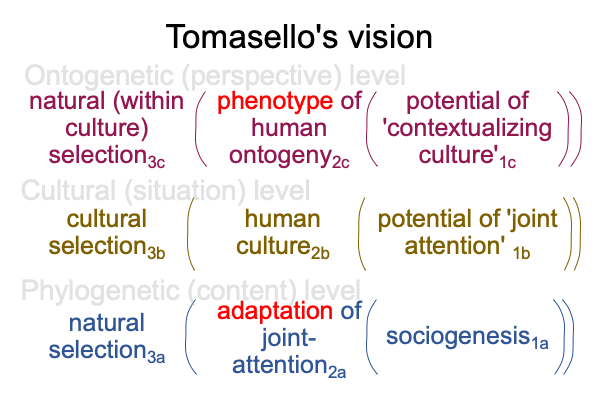
0076 According to Comments on Dennis Venema and Scot McKnight’s Book (2017) Adam and the Genome (by Razie Mah, available at smashwords and other e-book venues), adaptation2 and phenotype2 belong to two independent scientific disciplines: natural history and genetics. Since both belong to situation-level nested forms that rely on different potentials, one cannot situate or contextualize the other. However, this is precisely what occurs in Tomasello’s vision.
Of course, Tomasello’s vision remains a breakthrough in the framework of modern science. At least, the phenotype does not correspond to the adaptation. Instead, the phenotype2c puts culture2b into perspective. Then, culture2b virtually situates the adaptation of joint attention2a.
Yes, to repeat, the phenotype2c does not directly situate the adaptation2a. Tomasello’s vision leads upwards from joint attention2a to human culture2b and then to human cognitive development2c. Cognitive development2c puts culture2b into perspective, just as culture2b virtually situates joint attention2a.
Tomasello’s vision is truly remarkable.
0077 And, it is difficult to achieve.
This book is the start of a twenty year journey.
0078 As noted in points 0055 through 0058, the last few chapters cover the cultural (situation) and ontogenetic (perspective) levels of Tomasello’s vision. As far as I can see, these chapters labor to show how human ontogeny2c (the scientific study of human development) virtually contextualizes human culture2b (a somewhat vaguely defined term that refers to all situations where joint attention2a pertains). In the process, Tomasello must also explain how human culture2b, especially spoken language and symbolic representation, virtually emerges from and situates joint attention2a.
How ambitious is that?
0079 Here a picture of the virtual nested form in the realm of actuality (the vertical column in secondness in Tomasello’s vision, portrayed as a nested form).
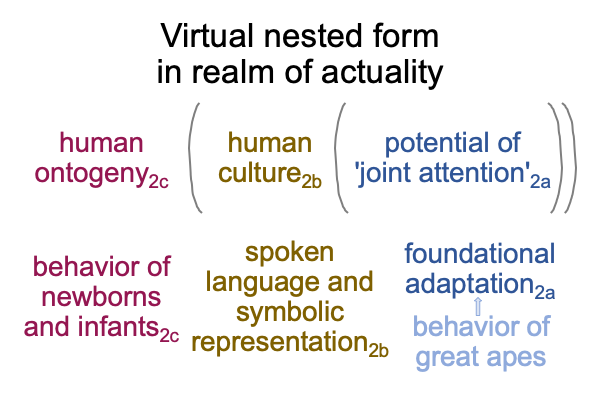
The normal context of the behavior of newborns and infants2c virtually brings the actuality of spoken language and symbolic representation2b into the potential of a foundational adaptation2a.
0080 Yes, this is very ambitious, and the final three chapters of this book strain to meet the challenge. They should be read with this in mind. The last three chapters are well composed. Tomasello is an excellent writer. He is very organized. But, his exposition is like lifting a two-hundred pound octopus out of the water. As soon as one arm is lifted, a different one slides back into the murk.
0081 Plus, there is the lingering issue of natural history.
Here is a picture with Tomasello’s guesses.
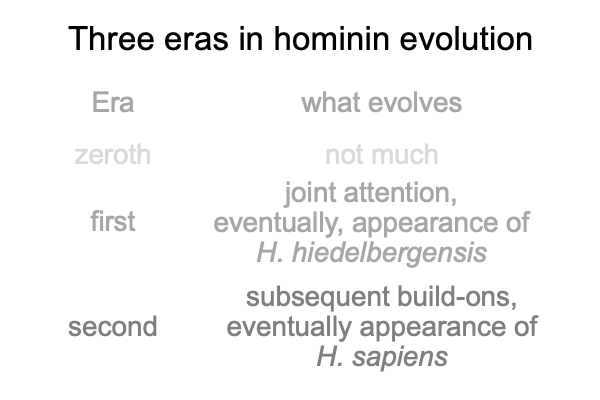
Tomasello makes two associations that make no sense at all, when considering joint attention2b as an adaptation to sociogenesis1b in the normal context of natural selection3b. Sociogenesis1b is the human niche1b. The human niche1b is the potential1b of triadic relations2a. Consequently, the adaptation of joint attention2a should be marked in the archaeological record with the appearance of the Homo genus, around 1.8Myr (millions of years ago).
0082 With that in mind, I close this examination of the first step in Tomasello’s journey, scientifically exploring who we are. The next step is a book that expands and clarifies this first step. It is published nine years later.

